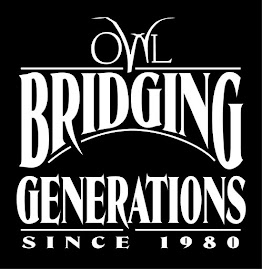This week, OWL and many women's organizations celebrated Equal Pay Day. This day marks the point in 2009 when women's earnings catch up to what men's earnings were in 2008. Our staff and members wore red clothing as a symbol of women's pay still being "in the red."
Today is "Blog about Elder Economic Security Day." A key concern is that we can't achieve economic security or change policy if we don't have an accurate measure of income adequacy. Our friends at Wider Opportunities for Women have developed a much better tool than what is currently used for figuring out the true costs are that we face in retirement. The Elder Economic Security Standard™ Index (Elder Index) is a much more precise and up-to-date measure of seniors’ income adequacy and economic well-being.
The Elder Index provides a complete picture of what it takes for an individual 65 years or older to age in place with dignity. The Elder Index uses cost data from federal and state sources to assemble a realistic household budget, which includes expenses such as housing, transportation, food, and health care. The Elder Index will show that household expenses can vary significantly due to variables such as health status, geographic location, housing status, and marital status. The Elder Index can help us to figure out what women need to truly be able to retire free from poverty
The Elder Index provides a complete picture of what it takes for an individual 65 years or older to age in place with dignity. The Elder Index uses cost data from federal and state sources to assemble a realistic household budget, which includes expenses such as housing, transportation, food, and health care. The Elder Index will show that household expenses can vary significantly due to variables such as health status, geographic location, housing status, and marital status. The Elder Index can help us to figure out what women need to truly be able to retire free from poverty
Women still earn fewer cents on the dollar than men 44 years after the passage of the Equal Pay Act. Fewer dollars earned means fewer dollars to save. I am expected to live on average six years longer than my male counterpart. I am also projected to spend up to twelve years caregiving for children, grandchildren, spouse, parents or grandparents. These twelve years of labor are of course unpaid.
We need a better measure of economic security and the Elder Economic Security Index is a major leap forward in helping policy makers to see what women need.
We need a better measure of economic security and the Elder Economic Security Index is a major leap forward in helping policy makers to see what women need.
Ashley B. Carson
Executive Director, OWL







4 comments:
I agree, the best efforts to prepare require a realistic picture of what is needed to retain independence and dignity while we age. In my case, with a lack of adequate income to significantly save, I have started a gradual reduction in the cost of living. With time to prepare, I can simplify to a reasonable and sustainable standard of living that will last.
I am personally concerned about economic security issues as well as professionally concerned. My mother requires some special care at her assisted living faciilty now and I am very worried that she will outlive her money and her options will be so limited that she will lose much of her quality of life. Professionally, as a gerontologist, I have spent my career thinking and writing about the well-being of older adults and much of that comes down to having resources adequate for the needs. Living on the edge is something that no one should have to do when they are in their 80's, 90's or 100's.
This is an extraordinarily big concern----having enough money to last through your life. Equal pay makes a difference, but, in fact, people are kept alive now for much longer than they lived in the past, and outliving your resources is a realistic fear for everyone. I think we need to keep this in mind when we plan for "safety nets" in our society. (Including, of course, health care.)
What a great piece! At the college where I teach, I'm making a bulletin board about gender wage inequities, and I'm going to print this piece to add.
Post a Comment